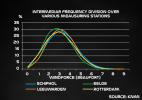Difference between revisions of "Msc1G5:Expert2"
From m4h
(→Analysis) |
|||
| (9 intermediate revisions by one user not shown) | |||
| Line 1: | Line 1: | ||
__NOTOC__ __NOTITLE__ | __NOTOC__ __NOTITLE__ | ||
| − | |||
| − | |||
| − | |||
| − | |||
| − | |||
| − | |||
| − | |||
| − | |||
| − | |||
| − | |||
| − | |||
| − | |||
| − | |||
| − | |||
| − | |||
| − | |||
| − | |||
| − | |||
| − | |||
| − | |||
| − | |||
| − | + | <html><head> | |
| − | < | + | |
| − | + | ||
| − | + | ||
| − | + | ||
| − | + | ||
| − | + | ||
| − | < | + | |
| − | '''The | + | <img src="http://m4h.hyperbody.nl/images/8/86/M4H_NEW_BANNER_xxxo-01.png" width="968" height="452"usemap="#map"> |
| − | <gallery widths=200px heights=100px perrow= | + | |
| − | File: | + | <map name="map"> |
| − | + | <area shape="rect" coords="13,391,204,450" href="http://m4h.hyperbody.nl/index.php/Msc1G5:Frontpage"> | |
| − | + | <area shape="rect" coords="212,393,407,449" href="http://m4h.hyperbody.nl/index.php/Msc1G5:Expert1"> | |
| − | + | <area shape="rect" coords="417,393,599,452" href="http://m4h.hyperbody.nl/index.php/Msc1G5:Expert2"> | |
| + | <area shape="rect" coords="797,394,953,449" href="http://m4h.hyperbody.nl/index.php/Msc1G5:Expert3"> | ||
| + | <area shape="rect" coords="607,394,791,449" href="http://m4h.hyperbody.nl/index.php/Msc1G5:Expert4"> | ||
| + | |||
| + | |||
| + | </map> | ||
| + | </head> | ||
| + | </html> | ||
| + | |||
| + | |||
| + | |||
| + | <br> | ||
| + | |||
| + | |||
| + | ==Analysis== | ||
| + | '''Wind''' | ||
| + | Various calculations have proved that the minimum velocity for people to fly in the voids would be 55 m/s. The current configuration of voids combined with a venturi in the middle will enable flying at an intake speed of 10m/s. Looking at the wind data of Rotterdam, flying will be possible roughly 15 days per month. The velocity is stabilized by placing adaptable components in the venturi. | ||
| + | The wind will also be used to generate energy. The maximum energy production in the most optimal vertical void is 278 kWh per second. Horizontal voids give a maximum of 40 kWh per second. | ||
| + | |||
| + | '''Wind frequency''' | ||
| + | <gallery widths=200px heights=100px perrow=3> | ||
| + | File:Windgrafiek-01.png | ||
</gallery> | </gallery> | ||
| + | |||
| + | '''Context''' | ||
| + | <youtube width="850" height="520">vDD3-9MA4R0</youtube> | ||
| + | '''Wind analysis''' | ||
| + | <youtube width="850" height="520">TuPxHGG6wCY</youtube> | ||
| + | '''Script variations''' | ||
| + | <youtube width="850" height="520">izw23IHyGnk</youtube> | ||
Latest revision as of 12:33, 25 January 2015

Analysis
Wind Various calculations have proved that the minimum velocity for people to fly in the voids would be 55 m/s. The current configuration of voids combined with a venturi in the middle will enable flying at an intake speed of 10m/s. Looking at the wind data of Rotterdam, flying will be possible roughly 15 days per month. The velocity is stabilized by placing adaptable components in the venturi. The wind will also be used to generate energy. The maximum energy production in the most optimal vertical void is 278 kWh per second. Horizontal voids give a maximum of 40 kWh per second.
Wind frequency
Context
Wind analysis
Script variations
